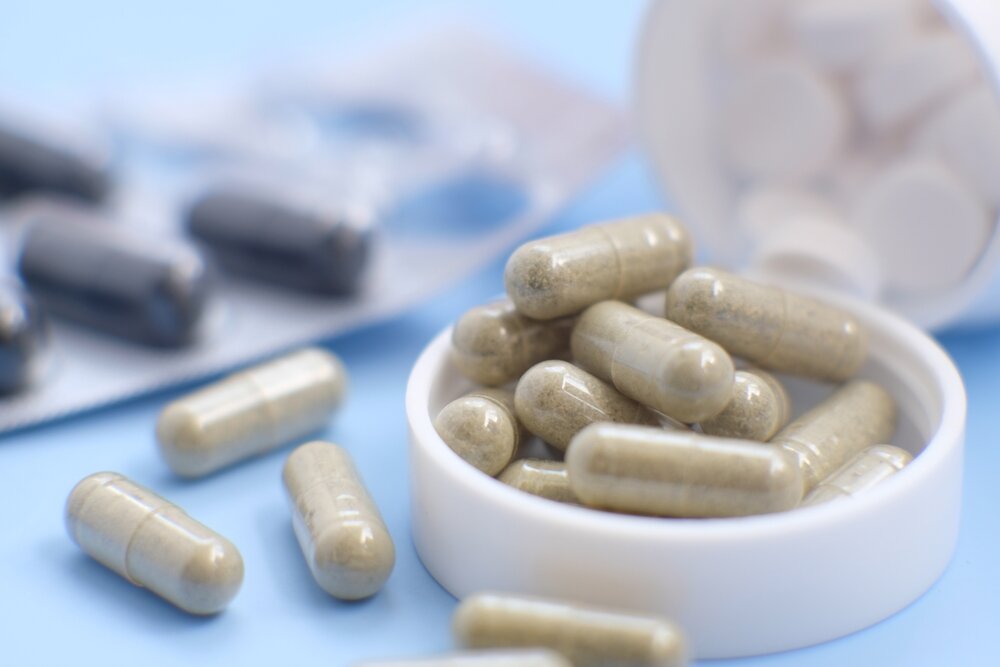Ubiquinol vs. Ubiquinone: Which Is Right for You?
Published August 5, 2022.

Ubiquinol and ubiquinone are forms of Coenzyme Q10 and offer numerous benefits. While you may not have heard of these substances before, you've likely come across Coenzyme Q10.
Coenzyme Q10, otherwise known as CoQ10, is a vitamin-like substance that acts like an antioxidant and assists in protecting your cells from damage, and plays a significant role in your metabolism.
It is also praised for improving heart health and regulating blood sugar levels. Antioxidants, as a supplement or from our diet, are known to prevent (and treat) cancer. Many migraine sufferers also use this nutrient to reduce the frequency of their migraines.
Usually, the body is able to produce ubiquinol and ubiquinone on its own. It is found in several foods, but sometimes people take a laboratory-made supplement that provides ubiquinol and ubiquinone to enhance their health.
But how do they differ, and which one should you use? This article will compare and contrast the two nutrients so that you can make an informed decision about the best one for you.
The Main Difference Between Ubiquinol and Ubiquinone
Ubiquinol and ubiquinone are different in how they are formed from Coenzyme Q10. Ubiquinone is the oxidized form of CoQ10, whereas ubiquinol is the reduced or active antioxidant form. This simply means that ubiquinol has fewer electrons than ubiquinone.
Interestingly, CoQ10 molecules repeatedly convert back and forth from the oxidized form to the reduced form.
Although there is a microscopic difference between them, the two have different roles to play in the body and offer different benefits. Ubiquinone is sometimes construed as offering fewer benefits than ubiquinol, but this is not the case, as you will discover below.
Benefits of Ubiquinol
Energy Production
Ubiquinol is primarily responsible for mitochondrial energy production. It is essential for transferring electrons to generate cellular energy. As a result, ubiquinol is important and can be considered a powerful antioxidant.
Improves Heart Health
The highest concentration of ubiquinol is found in the heart because this organ needs a lot of cellular energy to function.
Reduces LDL Cholesterol Levels
Ubiquinol also helps reduce LDL (low-density lipoprotein) cholesterol oxidation. High levels of this "bad" cholesterol cause a buildup of plaque in the arteries, leading to chest pains and heart attacks. There is also a link between high cholesterol and high blood pressure, which, again, poses serious risks of heart attacks and strokes.
Assists Male Fertility
Male infertility isn't an uncommon problem, and ubiquinol can help to improve fertility by protecting sperm cells from oxidative damage. Additionally, ubiquinol can boost sperm energy production, which can help increase sperm count.
Benefits of Ubiquinone
Prevents Migraines
Studies have indicated that ubiquinone can help migraine sufferers by lowering the frequency of their migraine attacks. However, ubiquinone should not be seen as a specific treatment for migraines.
Improves Skin Health
Ubiquinone is good for your skin! It performs essential work in the body that helps to support the good health of your skin.
Reduces Fatigue
Much like ubiquinol, ubiquinone helps to produce energy and, as such, can help to fight fatigue and give your body fuel to perform at its best.
More Cost-Effective Supplement
Ubiquinone is cheaper to chemically process and manufacture than ubiquinol. This means that ubiquinone is the more cost-effective option when taken as a supplement.
Which Is Better: Ubiquinol or Ubiquinone?
To date, no studies have proven that ubiquinol is better than or inferior to ubiquinone. They both serve their purposes in the body and are very similar despite their minor differences.
The roles they play in the body are determined by their bioavailability. It comes down to what your body needs at a specific point and how it responds to that need.
Even if you consume ubiquinone, the body can change it into ubiquinol as it sees fit and deems necessary—and vice versa. The body can absorb Coenzyme Q10 in both forms equally and converts one form into the other in a constant state of equilibrium.
Coenzyme Q10 as a Supplement
There are many reasons to take supplements in addition to a healthy diet and exercise. And with so many benefits, Coenzyme Q10 is an excellent supplement to take.
Should you look for ubiquinone or ubiquinone as the main ingredient? Because of the body's ability to convert one form into the other, it doesn't matter whether the supplement contains ubiquinone or ubiquinone.
What's important is the quality of the supplement. The CoQ10 MD supplement is an excellent option as it also contains BioPerine® and MCT oil, which both help the body absorb the coenzyme. Just remember that when you take a supplement, it takes time for vitamins to work.







